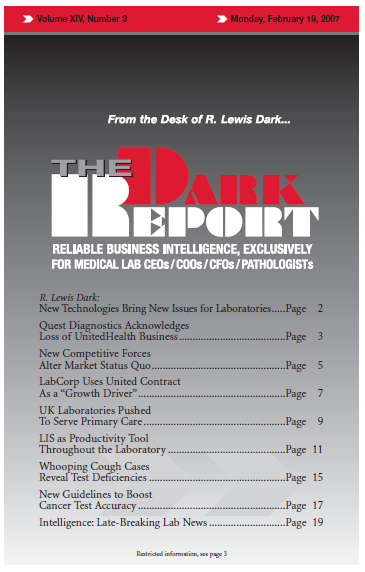CEO SUMMARY: At the fifth annual Frontiers in Laboratory Medicine (FiLM) meeting in Birmingham, England, lab administrators and pathologists from the United Kingdom and the United States gathered to share knowledge about innovations in the management of clinical laboratories. The event sold out for the second consecutive year, demonstrating the keen interest in the United […]
To access this post, you must purchase The Dark Report.


